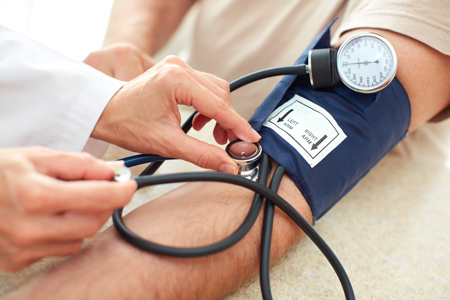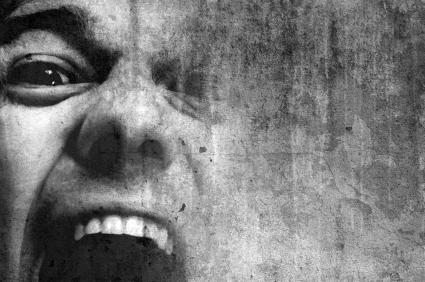Naltrexone Augmented with Prazosin Is Highly Effective for Alcohol Use Disorder
Murray Raskind, of the VA Northwest Mental Illness Research, Education, and Clinical Center, conducted a translational proof-of-concept randomized controlled trial (RCT) of the mu-opioid receptor antagonist, naltrexone, augmented with the alpha-1 adrenergic receptor antagonist, prazosin, for alcohol use disorder in veterans.
“Prazosin was titrated over 2 weeks to a target dose of 4 mg QAM, 4 mg QPM, and 8 mg QHS. Naltrexone was administered at 50 mg QD…. In the NAL-PRAZ condition, % reductions from baseline for all three primary outcome measures exceeded 50% and were at least twice as large as % reductions in the NAL-PLAC condition.
They concluded: “These results suggest that prazosin augmentation of naltrexone enhances naltrexone benefit for AUD. They are consistent with preclinical studies in rodent models of AUD and strengthen rationale for an adequately powered definitive RCT. “
Prazosin Effective and Well-Tolerated for PTSD in Young People
In a poster session at the 2019 meeting of the American Academy of Child and Adolescent Psychiatry (AACAP), three posters highlighted the efficacy and tolerability of prazosin, a drug typically used to treat high blood pressure, for the treatment of childhood-onset post-traumatic stress disorder (PTSD).
Researchers Samira Khan and Taniya Pradhan of West Virginia University reviewed cases in which 39 patients aged 8–19 received 1–5 mg of prazosin at bedtime. The mean dose was 1.72 mg. Sleep (including nightmares) improved in 92.3% of the youths, and mood improved in 33.3%. Sleep improved more in patients who received lower doses (1–2 mg) than those who received higher doses. About 70% of the patients whose data were included in the case series were also receiving psychotherapy while being treated with prazosin.
In another poster, researcher Vladimir Ferrafiat and colleagues from University Hospital of Rouen in France reported on a prospective study of 18 participants under age 15 with severe PTSD who were unresponsive to other medications. The participants were given 1 mg of prazosin at bedtime, which was increased to 3 mg in 20% of the participants. The youth were assessed weekly over a one-month period. Improvement was seen in all domains, including sleep, nightmares and daytime intrusive symptoms. Prazosin was well tolerated, with only one patient experiencing low blood pressure, which did not necessitate withdrawal from the study.
In the final poster, researcher Fatima Motiwala and colleagues reviewed the literature on the treatment of PTSD in children. Motiwala indicated that among the options, prazosin was widely used in her hospital, at doses starting at 1 mg given at bedtime and increasing to a mean of 4 mg at bedtime with excellent results and tolerability.
Editor’s Note: Although these were not double-blind controlled studies, the findings are noteworthy in that they provide consistent data on the effectiveness and tolerability of prazosin in low doses in children with PTSD, essentially mirroring controlled data in adults, where higher doses are typically required.
High Blood Pressure is a Marker of Good Response to Prazosin in PTSD
Prazosin, an alpha-1 adrenoreceptor antagonist, has been found to be effective at reducing symptoms of post-traumatic stress disorder (PTSD), including nightmares. Researchers led by Murray Raskind hypothesized that there may be a link between blood pressure and response to prazosin, since resting blood pressure can be used to measure alpha-1 adrenoreceptor responsiveness. In a study of active duty combat soldiers with PTSD, higher resting blood pressure and smaller drop in blood pressure when going from lying down to standing up predicted a better response to prazosin.
The researchers believe that blood pressure can be used to estimate the central nervous systems’s responsiveness to norepinephrine, which prazosin blocks. In patients with PTSD who received placebo instead of prazosin, blood pressure did not predict improvement. Raskind and colleagues hope to be better able to predict response to prazosin in PTSD by measuring patients’ baseline blood pressure.
Prazosin Effective for Nightmares and Other PTSD Symptoms
Researcher Murray Raskind has conducted a series of controlled studies, all with the same conclusion—the alpha-1 antagonist prazosin, used to treat high blood pressure, works for post-traumatic stress disorder (PTSD), especially in preventing nightmares. In his latest study, 67 soldiers were randomly assigned to either prazosin or placebo for 15 weeks. Doses were slowly titrated (to avoid low blood pressure and dizziness) to a possible maximum dose of 5mg at midmorning and 20mg at bedtime for men and 2mg at midmorning and 10mg at bedtime for women over a period of 6 weeks, based on whether the patients continued to experience nightmares.
Raskind found that prazosin was effective for trauma nightmares, sleep quality, global functioning, total score on a scale of PTSD symptoms, and hyperarousal. Side effects were minimal. Raskin concluded that prazosin “is effective for combat-related PTSD with trauma nightmares in active-duty soldiers, and benefits are clinically meaningful.”
Prazosin Treats PTSD Nightmares
Patients with PTSD often struggle with nightmares, but a treatment normally used for high blood pressure may also be able to prevent these sometimes horrific dreams. In a study that marks the third replication of this finding, Murray Raskind, a researcher from the University of Seattle, reported that prazosin was significantly better than placebo at selectively blocking nightmares in 77 Iraq war veterans with PTSD in a 15-week trial. (Interestingly, normal dreaming is uninterrupted.)
Editor’s Note: Prazosin is a noradrenergic alpha-1 receptor antagonist. Doses of this drug must be titrated upward slowly over a period of 6 weeks to avoid orthostatic hypotension (a sudden fall in blood pressure that occurs when a person stands up). Maximum doses achieved in this study were 5mg mid-morning and 20mg at night (although 10mg at night is often effective). This treatment, although not FDA-approved, is increasingly being used in veteran populations and other patients with PTSD.





